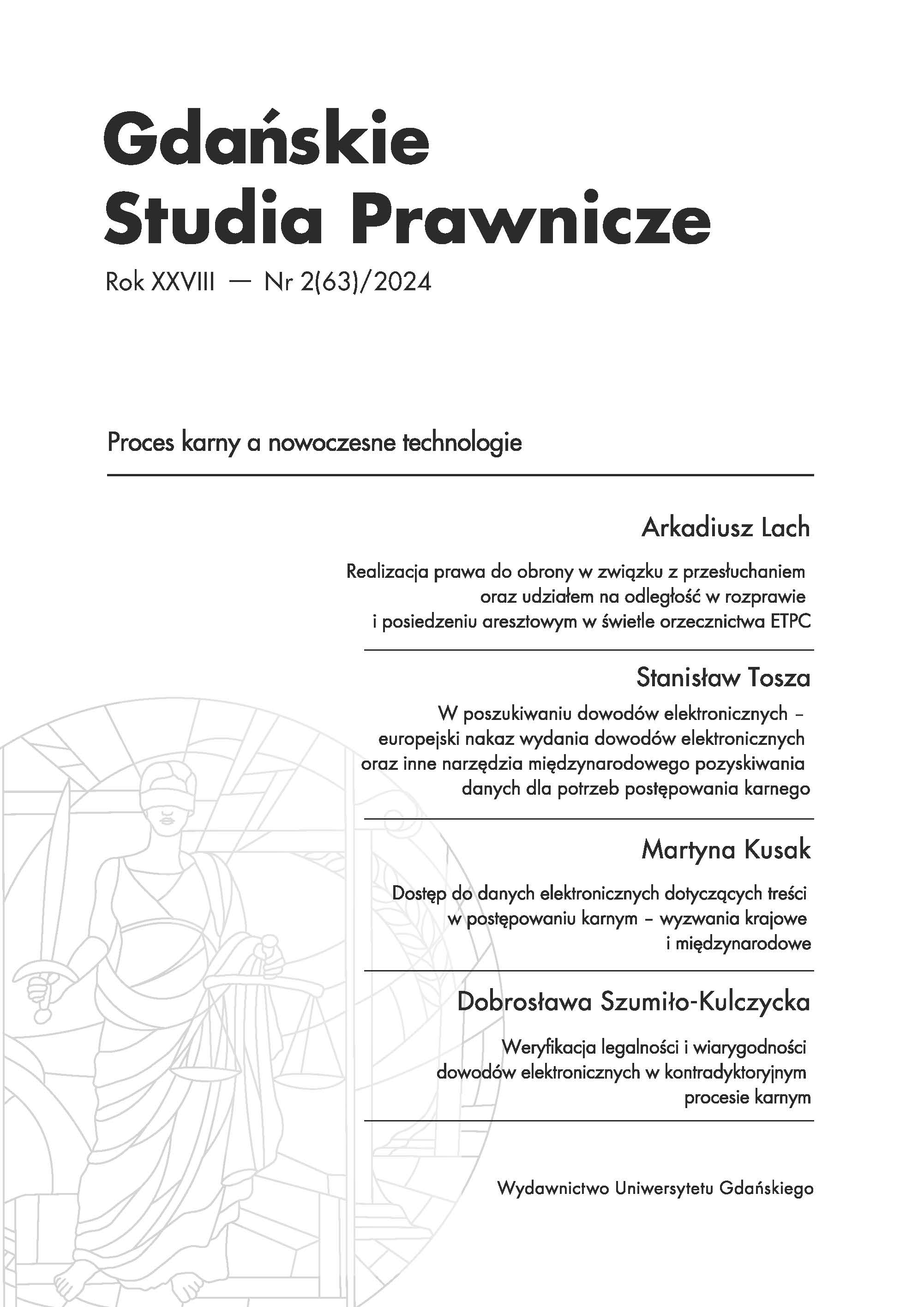Konsekwencje wadliwości uzasadnienia decyzji sądu o zastosowaniu „specjalnych środków dochodzeniowych”
Consequences of Defective Reasoning in the Court’s Decision to Apply “Special Investigative Measures”
Author(s): Dominika CzerniakSubject(s): Law, Constitution, Jurisprudence
Published by: Wydawnictwo Uniwersytetu Gdańskiego
Keywords: criminal procedurę; European criminal procedurę; EU law; human rights in criminal procedurę; secret surveillance; right to privacy.
Summary/Abstract: In the analyzed judgment, the CJEU discussed the question of reasoning courts’ decisions on the use of special investigative measures, including secret surveillance. Examining the Bulgarian legislation, the CJEU decided that if the reasoning of the request for secret surveillance measures allowed the legality, proportionality, necessity, and subsidiarity of these measures to be analyzed by a competent authority, the court’s decision may be limited to merely annotating the fulfilment of the above requirements. The crucial factor is the ability of the party and the court deciding in the criminal case to know the reasons for applying the “special investigative measures”. However, the CJEU did not answer what happens when the statement of reasons does not meet the requirements under national law (it is not individualised). By referring to the ECHR jurisprudence (based on Article 8 of the ECHR), it was pointed out that if the defendant and the court during a trial, due to the defectiveness of the reasoning of decisions on secret surveillance measures, cannot verify the legality, necessity, and proportionality of the interference with the privacy of an individual, the materials gathered as a result of secret surveillance activities cannot be used as evidence in a criminal trial.
Journal: Gdańskie Studia Prawnicze
- Issue Year: 2/2024
- Issue No: 63
- Page Range: 147-157
- Page Count: 11
- Language: Polish

